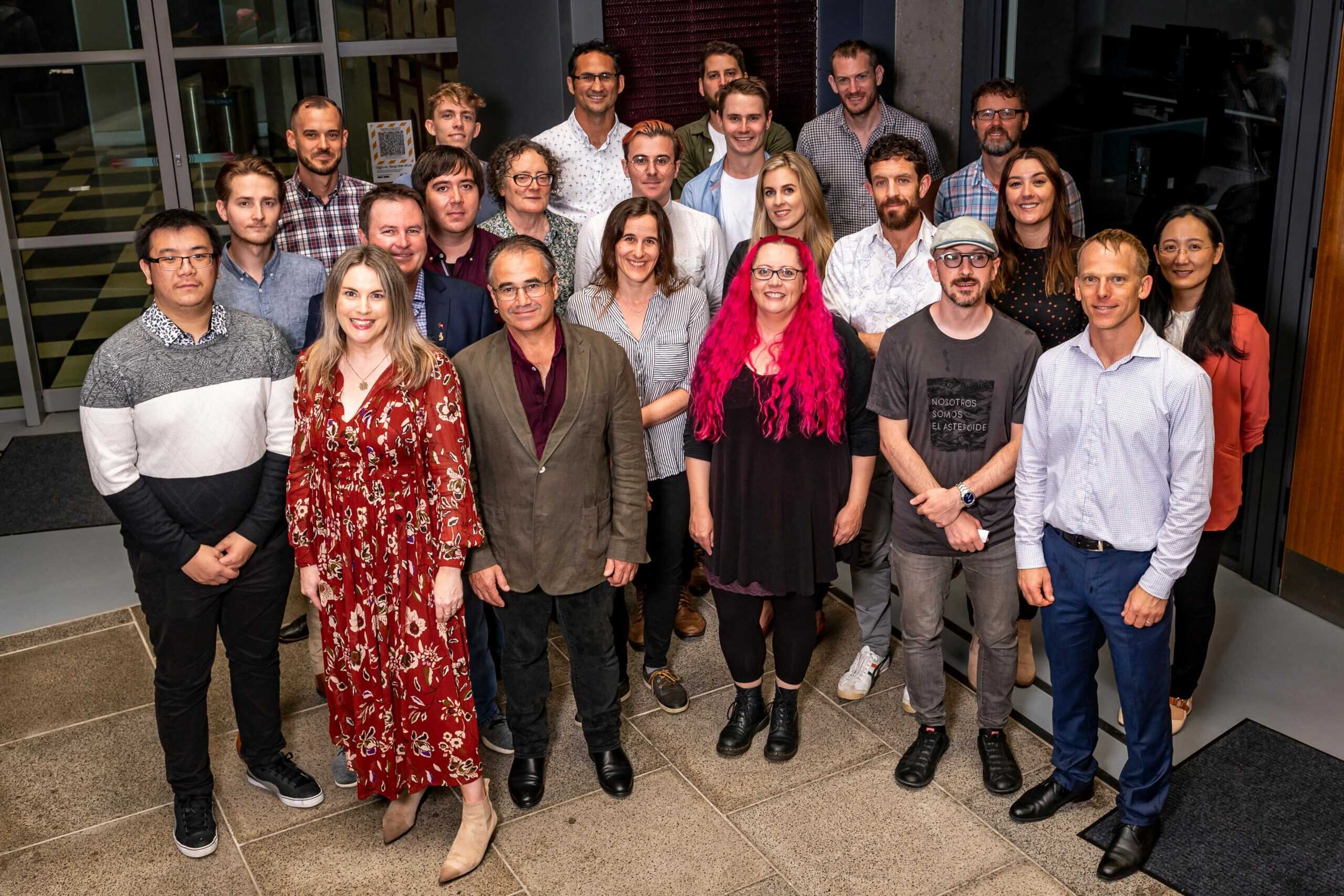Prime Minister Jacinda Ardern awarded five prizes last night in Wellington in recognition of the impact of science on New Zealanders’ lives.
Te Pūnaha Matatini was awarded the 2020 Prime Minister’s Science Prize for its COVID-19 response. The centre quickly assembled a team in early 2020 to fill what it saw was a gap in providing the New Zealand Government with the data science it needed to make informed decisions about responding to the pandemic.
Centre director Professor Shaun Hendy thanked Kiwis for “listening to us, for trusting us – it’s been incredible”.
“If we hadn’t had that trust, it would have all been for nothing. So, it has meant the most that the public has got behind us and they have taken what we have said seriously.”
Professor Hendy, along with Te Pūnaha Matatini deputy director Associate Professor Siouxsie Wiles and Science Communication Prize winner Professor Michael Baker appeared on TVNZ Breakfast the morning after to discuss the importance of communicating their science amidst the pandemic.
Professor Baker won the prize for being New Zealand’s ‘go-to’ science expert since the start of the pandemic.
He told the Otago Daily Times that he felt “absolutely compelled to communicate because at some points I thought New Zealand was heading off a cliff, particularly a year ago when we were at a real crossroads as to whether to follow a flatten the curve approach or to forge a different direction to eliminate the virus.”
Dr Christopher Cornwall, a Rutherford Discovery Fellow at Victoria University of Wellington won the 2020 MacDiarmid Emerging Scientist Prize for his work on how marine organisms will fare under climate change.
He told Stuff’s Olivia Wannan that learning about his win was “a moment of pure elation.”
“It’s recognition of all those 16-hour days, you’re out in the field in the Kimberley, and it’s like 40 degrees Celsius and the water’s 40C and you’re baking yourself for weeks on end.”
The Otago Daily Times’ Tracey Roxburgh profiled Queenstown school teacher Sarah Washbrooke, who was the first technology teacher to win the Science Teacher Prize.
Ms Washbrooke has taught at the school since 2016 as its technology specialist teacher, focusing primarily on years 6 to 8. She said her hands-on approach to teaching meant her pupils were often unaware of the depth and range of learning they were doing.
“A lot of my students don’t actually realise that they are doing a lot of maths and English and scientific principles in technology until I actually point it out afterwards that they have done an hour of writing, for example, in computational thinking.”
Teenager James Zingel won the Prime Minister’s Future Scientist prize for his research into whether quantum computing could improve breast cancer diagnosis.
Nine to Noon’s Kathryn Ryan spoke with him about his project, which he said he spent most of his summer between years 12 and 13 doing.
“I think the first time I coded the algorithm and it gave me about 80 per cent accuracy, I’m like, ‘Yes, it actually finally worked. I’ve actually got somewhere.’”
Here are some of this week’s highlights:
NZ Herald: Covid 19 coronavirus: Pandemic’s science stars honoured by PM Jacinda Ardern
Stuff: Covid-19 researchers take out top Prime Minister’s Science Prize
Otago Daily Times: Otago Uni epidemiologist wins science communication prize
Otago Daily Times: Remarkables teacher wins science prize
Newshub: Te Pūnaha Matatini, spearheaded by disease modeller Shaun Hendy, wins Prime Minister’s Science Prize for COVID-19 response
Stuff: Stressing out reef life earns marine researcher a nod from the PM
RNZ – Our Changing World: 2020 Prime Minister’s Science Prize winners
1News: NZ’s ‘go-to’ Covid-19 expert Michael Baker wins PM’s Science Communication Prize
TVNZ Breakfast: Trio of scientists who’ve been face of NZ’s Covid response delighted over PM’s Science Prizes
RNZ – Nine to Noon: Teen wins science prize for quantum computing research
